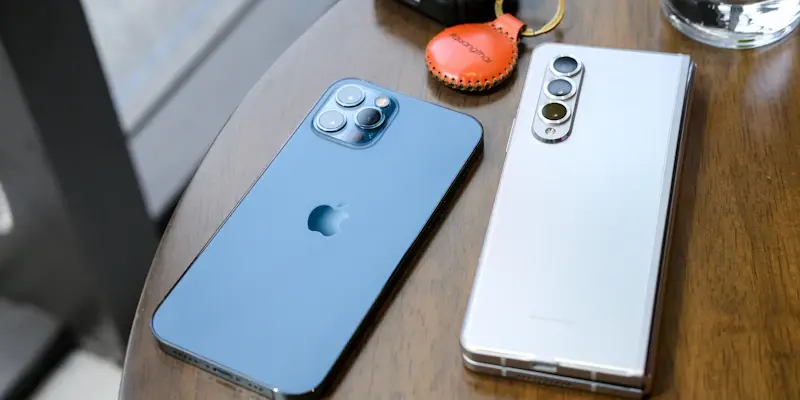The ever-evolving smartphone market constantly forces manufacturers to innovate in various areas, and battery technology is no exception. In recent years, there has been a growing emphasis on developing larger batteries for smartphones without significantly increasing their thickness. Despite significant efforts from both Samsung and Apple, questions are arising about their competitiveness in this crucial aspect of mobile technology. While both companies are working on new materials to enhance battery capacity, they face intense competition from Chinese manufacturers who have already made significant advancements.
Samsung’s New Battery Materials
Samsung has reportedly been increasing the silicon content in its batteries to boost overall capacity and address potential expansion issues. This move is intended to offer smartphones with longer battery life without compromising on design. A South Korean tipster recently revealed that Samsung’s new battery development could lead to substantial improvements in battery longevity and efficiency. These advancements could play a crucial role in Samsung’s future flagship devices. However, despite these ambitious plans, the company has yet to reach the battery capacities seen in some Chinese smartphones on the market today.
The South Korean tech giant’s efforts are part of a broader industry trend toward achieving higher battery capacities in slimmer phone designs. Yet, with current models like the Samsung Galaxy S24 Ultra featuring significantly smaller batteries compared to some competitors, concerns remain. Samsung is not alone in this endeavor; Apple is also involved in enhancing its battery technology with potential new offerings set to debut by 2026. Both companies aim to keep up with the significant strides taken by competitors in the battery domain.
Apple’s Battery Technology Advancements
Apple, known for its innovative approach to technology, is also heavily invested in improving its battery technology. Rumors suggest that the company is working on new materials that could lead to increased battery capacity in future iPhones, potentially debuting in 2026. Despite the company’s focus on battery advancements, they are currently behind some of their competitors in terms of battery size and longevity. For instance, Chinese smartphone manufacturers utilizing silicon-carbon technology have already introduced devices with batteries as large as 7,000mAh.
In contrast, current top-tier models like the iPhone 16 Pro Max feature significantly smaller batteries. This disparity highlights a critical area where Apple needs to catch up if it wants to maintain its position as a market leader. Companies like Oppo are also working on devices with up to 7,000mAh battery capacities, with expectations that Chinese firms may even launch smartphones equipped with 8,000mAh batteries later this year. Such advancements by competitors emphasize the urgent need for Apple to make considerable strides in their battery technology to remain competitive.
The Competitive Landscape
The rapidly changing smartphone market continuously pushes manufacturers to innovate in various fields, with battery technology being a significant focus. Recently, there has been a notable trend towards developing larger batteries for smartphones without dramatically increasing their thickness. Both Samsung and Apple have invested considerable resources into this endeavor, yet there are rising concerns about their competitiveness in this vital area of mobile technology. They are experimenting with new materials to enhance battery capacity, but they face stiff competition from Chinese manufacturers who have already achieved substantial breakthroughs. These advancements by Chinese companies put pressure on Samsung and Apple to accelerate their innovation efforts. As consumer expectations grow, the ability to offer longer battery life while maintaining sleek designs becomes crucial. Both tech giants need to keep up with the pace of innovation to retain their market positions and meet the ever-growing demands of users worldwide. The race is on to see who will pioneer the next big leap in smartphone battery technology.

